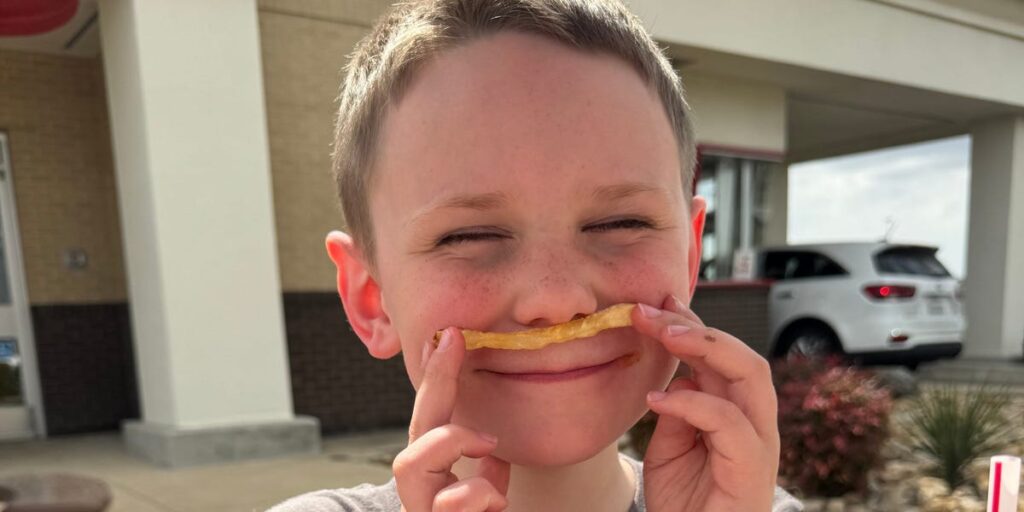Worrying is nothing new for my 7-year-old son.
He is smart and creative, loves Minecraft, and will climb on anything — but he gets scared walking across the house alone to his bedroom. He has a hard time falling asleep, as every little noise turns into a monster in his mind.
Overthinking seems to be his default setting. One evening, I spent 20 minutes chatting about how home insurance works to reassure him that we could buy new toys if our house burned down.
Randomly, he’ll feel down. It’s not uncommon for him to say he’s sad but doesn’t know why or, once, “my heart hurts because it feels broken” for seemingly no reason. He’s dealing with adult-level problems in a kid-sized body, and it’s not easy for him (or me!).
When therapy alone wasn’t helping, his doctor recommended an antidepressant SSRI medication called Zoloft, the same medication I take for anxiety.
I agreed immediately, never predicting that his reaction to the medicine would shock me as much as it did.
I had noticed the signs
As someone who has generalized anxiety disorder and has also experienced postpartum anxiety and depression, I was sad but not surprised when my son was diagnosed with anxiety as well.
I had noticed the signs in him for a while, including having trouble sleeping, problems focusing in class, experiencing explosive outbursts and irritability, and feeling clingy around parents, which the Child Mind Institute lists as common signs and symptoms for kids with anxiety.
I wanted to get him help as soon as I could, which is why I signed him up for twice-a-month therapy sessions.
Some of the strategies he learned in therapy helped, like spraying “monster spray” (water with a few drops of lavender oil) around his room to ward off bad dreams and using a special finger-counting method to stay calm when he was afraid.
Still, he felt anxious or worried “all the time,” according to him, and I knew it was time to explore more options. He still doesn’t know how to tie his shoes, so how could he be expected to manage these debilitating feelings of anxiety without some extra help?
Within days, he was lighter
My second grader easily adapted to taking a nightly pill for anxiety because he was already taking a different daily medication for ADHD. Even though the doctor warned me it could be a month or more before he started noticing anything different, I already sensed a change within a few days.
My stressed-out, always worrying, prone-to-meltdown-having boy felt lighter. It was like he was made of helium, floating through the house, giggling, playing with our family dog, letting his little brothers go first. Minor inconveniences didn’t faze him anymore. He was more joyful, calmer, and relaxed.
The weight of the world, which used to seem as permanent as his left arm, simply fell off his shoulders. He was happier, sillier, and more engaged with his family, and I couldn’t stop crying. It was like he had been given permission to just be a kid again, and it broke my heart to see how much he must have been suffering before.
Medicine didn’t change him or give him a personality transplant. It simply allowed who he was to float to the surface because waves of anxiety, worries, and fear were no longer dragging him down.
He’s even started gentle-parenting me. Techniques I had used in the past to help him regulate his emotions at the moment or think through his feelings seemed to always fail. But now, he would pull out some of these same words, pointing out that my tone was coming across as rude.
He would also use them on himself, telling me he needed to pause and take deep breaths when he got frustrated with his little brother. He’s now articulating his feelings like a pro and helping others, and it still blows me away.
For the first time in years, he is a carefree kid, and I couldn’t be happier for him.
Read the full article here


